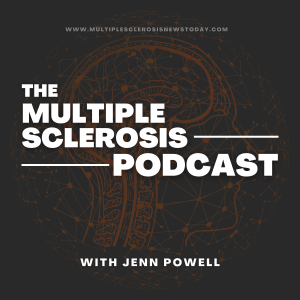CHMP Favors Kesimpta for Adults With Relapsing MS in Europe
Written by |

A branch of the European Medicines Agency (EMA) has recommended that Kesimpta (ofatumumab) be approved and made available to treat relapsing forms of multiple sclerosis (MS) in adults with active disease.
A final decision from the European Commission (EC) is expected in about two months. Typically, the EC follows opinions by the EMA’s Committee for Medicinal Products for Human Use (CHMP), which issued the recommendation.
“The positive CHMP opinion for Kesimpta underscores its potential to provide people living with [relapsing] MS in Europe with a new treatment that combines powerful efficacy with a favorable safety profile and can be taken at home,” Marie-France Tschudin, president of Novartis Pharmaceuticals, Kesimpta’s developer, said in a press release.
CHMP specifically recommended Kesimpta for adult patients with relapsing MS who have active disease, as defined by clinical and/or imaging features.
Kesimpta is an antibody-based treatment that is thought to work by killing B-cells, a type of immune cell involved in driving the inflammation that damages the nervous system in MS.
The medication is administered via monthly subcutaneous (under-the-skin) injections of 20 mg once each month. While many other B-cell depleting therapies for MS need to be administered by infusion directly into the bloodstream, subcutaneous injections can be safely done at home.
“By removing the need to go to an infusion center, Kesimpta has the capability to reduce the burden not only for patients, but also for physicians and the healthcare system,” Tschudin said.
The recommendation was based on results from the Phase 3 ASCLEPIOS clinical trials (NCT02792218 and NCT02792231). Collectively, these trials enrolled 1,882 people with relapsing MS.
 Check out the new MS News Today podcast
Check out the new MS News Today podcast
ASCLEPIOS participants were randomly assigned to treatment with Kesimpta or Aubagio (teriflunomide), an approved oral medication for relapsing MS that is marketed by Sanofi Genzyme.
Findings from both trials demonstrated that, compared with Aubagio, Kesimpta’s use lowered annual relapse rate by over 50%. The relative risk of disability progression after three months also fell by more than 30% with Kesimpta treatment. Trial data also indicated that Kesimpta lessened the extent of damage in the brain.
In a post hoc analysis, or an analysis performed after a trial is completed, nearly nine out of 10 Kesimpta-treated patients had no evidence of disease activity in their second year of treatment, Novartis reported.
“In MS, one of the main goals of treatment is to achieve no evidence of disease activity as early on and for as long as possible. Knowing that early initiation of high-efficacy treatments can improve long-term outcomes, it’s exciting to see that Kesimpta has the potential to halt new disease activity and help people to preserve neurological function and slow down the worsening of disability,” said Xavier Montalban, MD, PhD, with the Multiple Sclerosis Centre of Catalonia (Cemcat) at Vall d’Hebron University Hospital in Spain.
Montalban served as an investigator in the ASCLEPIOS program.
Kesimpta was approved in the U.S. to treat three types of relapsing MS in adults in August: clinically isolated syndrome, relapsing-remitting MS (RRMS), and active secondary progressive MS. It was also recently approved to treat RRMS in Canada.


